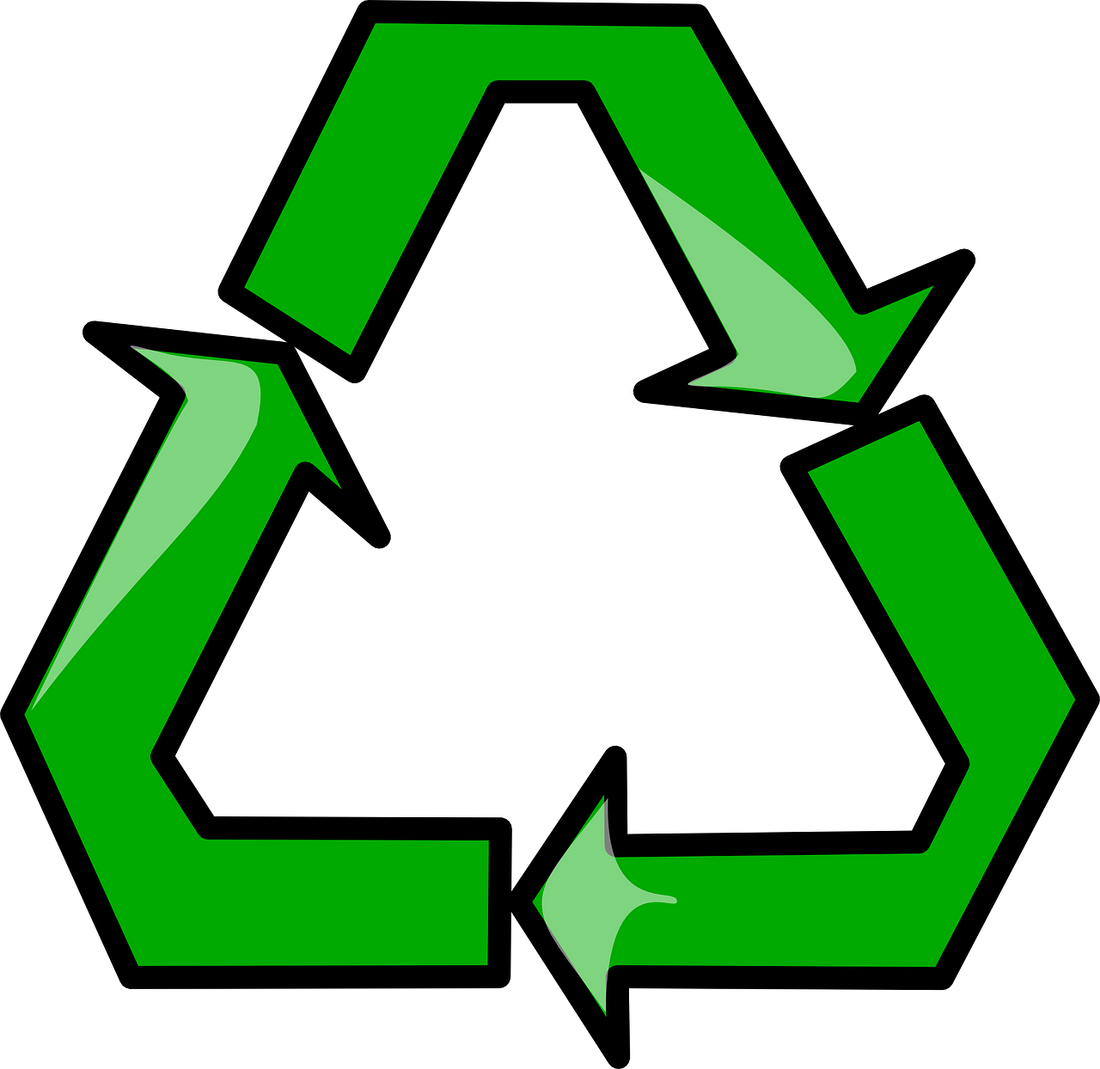
8 actions to live in a more ecological way
Share

Image by geralt on Pixabay
If you have been reading my articles for some time, you will have noticed my fervor and motivation to recover and care for the environment. Even more, to spread that feeling to those around me because I think it is the true legacy that we can leave to our children.
Most of my messages are directed towards detoxing and caring for our inner environment, meaning our bodies and minds. But today I am leaning towards our outer environment as both are deeply connected.
We are not perfect and changing habits that we have grown up with and lived with all our lives is not just a matter of course. It takes motivation, awareness and sensitivity to start taking steps and acquiring habits that improve our quality of life and that of those around us.
Our home, this planet, urgently needs us to become more and more responsible guardians and act consciously because every attitude, every habit we practice to care for it, counts .
Today I am presenting some ways in which, from our homes, we can reduce the impact we have on our planet.
Ways to reduce your environmental impact
- No more plastic straws (whenever possible)

These days, social media is flooded with images of ocean pollution, and perhaps one of the most shocking is seeing straws inserted into the nostrils of sea turtles.
The truth is that it is estimated that by 2050 there will be more plastic in the oceans than marine fauna. All that garbage that floats around contaminates and poisons those who live there.
By avoiding the use of straws as much as possible, we are making a good contribution to reducing pollution. However, let us remember that straws are an indispensable tool for some people with disabilities, so we must think of alternatives that work and adapt.
Alternatives for a more sustainable world:
- Support businesses and small companies that use biodegradable or recyclable materials. Let them know how much you appreciate their commitment and effort through the means you have available, such as social media and word of mouth.
- When you are offered a cigarette in a restaurant, politely decline and take the opportunity to spread the word.
- Try to get a reusable straw, if possible ( 1 ). I have also seen that in the Ecosapiens store tiendaecosapiens.com they sell steel and glass straws with their respective cleaners and even a case so you can carry it in your bag.
- Avoid plastic bottles , even if they are recyclable
Well, yes, even though plastic is recyclable, most of it ends up in the ground anyway. Plus, the manufacturing of those bottles creates a lot of toxic waste. We don't need plastic bottles to live an active, flexible and happy life, don't you think?
Alternatives for a more sustainable world:
- Get a reusable, eco-friendly bottle that you feel good about.
- Another alternative is glass jars with screw-on lids that can hold water, juice, and even your salad; and they do not contain BPA or PVC.
- Now let's talk about water filtration systems. Just because you're not using the packaged stuff anymore, doesn't mean you have to sacrifice safety and purity. Again, I'm offering you the Nikken water purification system. I've done a lot of research on water and the best quality you can get at home.
I suggest you read my article Why does water improve our quality of life? on water filtration systems so that you can choose which one suits you best.
- Take your shopping bags of vegetables and fruits with you
It's not enough to bring your reusable shopping bag. The plastic bags we put fruits and vegetables in take the same amount of time to degrade as the big ones, so let's go one step further and reuse the ones we have. How many of them are left lying around the house until they end up in the trash?
Many of the bags we use to buy fruit and vegetables can be put back into the same shopping bag and reused. I leave them ready to go in the trunk of my car.
Alternatives for a more sustainable world:
- Bring your own grocery bag(s) that are sturdy enough.
- Remember that the bags used to pack fruits and vegetables can also be reused.
- Leave reusable bags and other containers handy so you don't forget them when you leave the house.
- Cloth napkins, not paper ones
We've talked a lot about plastic, but let's not forget about paper. How many times do we grab a paper towel to clean something or a bunch of napkins when buying takeout food without even thinking about the consequences. The truth is that I've done it and you too, as I said above, these are habits we grew up with, but here we are talking about it and becoming aware of changing to habits with less ecological impact.
Alternatives for a more sustainable world:
- Give a second life to old towels and t-shirts by cutting them to the desired size and making them clean for cleaning.
- Reuse cloth napkins. We don't even remember we have the ones that came with a matching tablecloth. They can be used several times before being put in the washing machine.
- Also, keep 2 or 3 cloths in the car for cleaning and avoid using disposable tissues.
- Choose eco-friendly cleaning and personal care products
Most of us use personal care and hygiene products every day. These products have an environmental impact in several ways: toxins, the way they have been produced and tested (often on animals).
I personally stopped using tanning lotions and sunscreens a long time ago and opted for natural alternatives. But only recently, a law was passed in the state of Florida in the United States banning the sale of sunscreens containing oxybenzone and octinoxate, as the damage these toxins cause to coral reefs has finally been proven.
Remember that all the things we put on ourselves like creams, soaps and oils are absorbed through the skin and directly enter the bloodstream, imagine what these chemicals can do to our body.
Alternatives for a more sustainable world:
- Look for cleaning products that contain natural ingredients. Remember that the water that washes away soap, detergent, and disinfectant products has a greater chance of coming back to you than you might imagine. Well-known brands in Colombia are Biogar, Top Terra, and Ecoflora.
- Likewise, for personal care products, there are several online stores that offer quite interesting products: conSentido verde http://consentidoverde.com ; Ecosapiens tiendaecosapiens.com ; Jabotánica www.jabotanica.com
- Conscious online shopping

Online shopping has become very convenient, in every sense, but it comes at a price. Excessive use of packaging is one thing, but it goes further. We want things immediately and that requires un-ecological transportation mechanisms.
Alternatives for a more sustainable world:
- If possible, when shopping online, choose a shipping method other than express shipping. Choosing this option reduces the demand for fast transportation that often requires a truck that is not completely full of merchandise and more fuel expenditure.
- For orders containing more than one item, services like Amazon and others offer the option of packing all the items together and shipping them at once when they are all ready. This cuts down on packaging and inefficient shipping.
- If there are products that you can get or are close to your home and it is possible for you, try to do your shopping there, this option allows you to save time, fuel and packaging.
- Make a difference with what you eat
Throughout my time blogging, I have continually promoted a plant-based diet (vegetables, some fruits, nuts, seeds and herbs).
You should know that the issue of animal protein consumption also has a strong environmental impact and should be mentioned. There are several documentary videos that can be watched on Youtube or Netflix, which show what happens in the livestock and poultry industry. Among them, Forks over Knives, Cowspiracy …
Raising beef and lamb for meat produces 250 times more greenhouse gas emissions than legume farming. According to the U.S. Environmental Protection Agency, livestock farming is the number one cause of water pollution. ( 2 )
In addition, large amounts of antibiotics are used on animals to make them grow faster and prevent diseases that can be acquired in the unhealthy environments they are raised in. This not only contributes to water pollution, but affects fish and other aquatic life.
Alternatives for a more sustainable world:
- This isn't about eliminating all animal products, if that's not your intention, but you might consider decreasing your intake and increasing your intake of plant-based foods. Would you like some plant-based protein options? Check out the guide here.
- Try Meatless Monday and feel free to try some of my recipes on johannakoelle.com
- Want to quit for a few days? Try my plant-based keto cycle for 4 days and let me know how you feel. Find it here
- Cheap clothes, made with cheap materials and cheap labor

Image by Free-Photos on Pixabay
This is a topic to be discussed in much more depth, but there is a documentary that can give you an idea of what I am talking about, The “Price” of Fashion:
It is time to become aware of what is called modern slavery and to reflect on our position in a world of fast food, express shipping, waste of materials and disposable fashion.
Alternatives for a more sustainable world:
- Knowing that fashion is attractive and in some way, a requirement for social acceptance, but at this point, don't you think that a garment that is a little more expensive, but of good quality and durable, says more about the image you want to reflect?
- Try to choose natural fibers, they are much less toxic than synthetic fabrics:
- Polyester is the worst fabric you can buy. It is made from synthetic polymers made from dihydric alcohol esters and terephthalic acid.
- Acrylic fabrics are polyacrylonitriles that can even cause cancer, according to the EPA.
- Rayon is recycled wood fiber that must be treated with chemicals such as caustic soda, ammonia, acetone and sulfuric acid to withstand regular washing and use.
- Textile acetate and triacetate are made from wood fibers called cellulose and subjected to a chemical process to achieve the final product.
- Nylon is made from petroleum and is often given a chemical finish that can be dangerous.
- Anything that is static-resistant, stain-resistant, wrinkle-free, permanent press, or moth-repellent. Many of these fabrics are treated with perfluorinated chemicals, such as Teflon.

 My choice:
My choice: 



